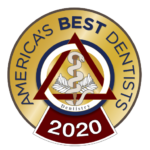Dentist in Farmington, CT
Advance Dental Care
Dental office serving in Unionville, Farmington Valley, and Avon CT.
Health, Integrity & Excellence
FARMINGTON CT DENTISTS
Advance Dental
Best Dentist in Unionville, Farmington Valley, and Avon CT. Health, Integrity & Excellence
Why Us?
Advance Dental Care offers comprehensive, high-quality services with experienced dentists and state-of-the-art technology. They prioritize patient education and communication, ensuring that each patient fully understands their treatment options and feels comfortable throughout their visit.
All-In-One Practice
Advance Dental Care is a one-stop practice that offers a wide range of dental services, including preventative care, cosmetic dentistry, restorative dentistry, orthodontics, and oral surgery. Their goal is to provide comprehensive and quality dental care under one roof.
Multiple Speciality
Advance Dental Care is a multi-specialty dental practice that offers a wide range of services to meet the diverse needs of its patients. The training provides various services, including preventative care, cosmetic dentistry, restorative dentistry, orthodontics, and oral surgery.
Convenient Appointment
Advance Dental Care understands the importance of convenience when it comes to scheduling appointments. They offer flexible scheduling options to accommodate patients with busy lifestyles.


Achieve a Beautiful Smile with Advance Dental Care in Farmington, CT
Dental office serving in Farmington, Unionville, and Avon CT
Advance Dental Care is a comprehensive dental practice located in Farmington, CT. The team comprises highly qualified and experienced dentists who specialize in providing top-notch dental care to patients of all ages. They offer a wide range of services, from regular check-ups and cleanings to more complex procedures such as root canals, crowns, bridges, and even cosmetic dentistry. The office is equipped with state-of-the-art technology, including digital x-rays, intraoral cameras, and laser dentistry, which allow the team to provide more precise and efficient care. The practice also utilizes the latest dental materials and techniques to ensure that patients receive the most advanced and comfortable care possible.





Committed to
Providing High-Quality Dental Services in Farmington CT
At Advance Dental , we offer a wide range of services in Unionville, Farmington and Avon, CT. We take particular pride in the smiles that we create as well as non-surgical periodontal treatment.
- Scientific Skills For getting a better result
- Communication Skills to getting in touch
- A Career Overview opportunity Available
Dental Excellence in Farmington, CT - Skilled Professionals for All Your Oral Health Needs
Are You Looking for Dentist in Unionville or Farmington CT?
If you are searching for the best dentists in town, consider us. Our primary focus is to provide superior patient care while striving for excellence in our work. Our offices are staffed with experienced, compassionate, and friendly dental professionals who take great pride in their work. We offer many different types of services to meet our patient’s needs.
One of the hallmarks of Advance Dental Care is the team’s commitment to patient education and communication. They take the time to explain each procedure and treatment option and answer any questions the patient may have so that they can make informed decisions about their oral health. This approach empowers patients to take an active role in their dental care and helps them achieve and maintain optimal oral health. The team provides a welcoming and comfortable patient environment and strives to create a positive and stress-free experience for all.
In addition to providing exceptional dental care, the team at Advance Dental Care is also dedicated to giving back to the community. They participate in various community outreach programs and volunteer their time and resources to help those in need. Advance Dental Unionville is an excellent choice for your dental needs with its commitment to patient care, community outreach, and the most up-to-date services and technology.
confidently smile with advance dental care
Preventive Dental Treatment In Farmington, Ct
Preventive dental treatment is an essential aspect of maintaining good oral health. It focuses on preventing the development of dental problems rather than treating them after they have occurred. At our practice in Farmington, CT. we believe that preventive dental care is the key to a healthy and beautiful smile.
Our preventive dental treatment services include regular check-ups and cleanings, during which we thoroughly examine your teeth, gums, and jaw for any signs of decay or disease. We also take digital x-rays to identify any issues that may not be visible during a visual examination. We also provide fluoride treatment and dental sealants to help strengthen teeth and protect them from decay.
We also offer oral cancer screenings, which involve thoroughly examining the mouth and throat to detect any signs of cancer or precancerous growths. Early detection of oral cancer can greatly improve the chances of successful treatment.
We also educate patients on proper oral hygiene techniques, such as brushing and flossing. We also discuss with the patient how to maintain good oral health through a healthy diet and lifestyle choices.
In addition to these preventive treatment services, we also provide regular cleanings, which involve the removal of plaque and tartar buildup. Preventive treatment helps to keep teeth and gums healthy and also helps to prevent bad breath.
Overall, preventive dental treatment is essential to maintaining good oral health. By catching problems early and providing patients with the education and tools they need to maintain good oral hygiene, we can help our patients achieve and maintain a healthy and beautiful smile.
Our Farmington, CT. practice is committed to providing high-quality preventive dental care to our patients. With our comprehensive services and experienced team, we can help you achieve and maintain a healthy and beautiful smile.
